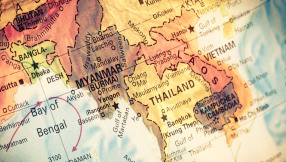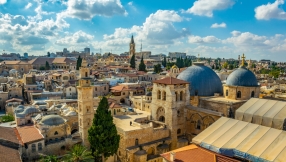Church of England Criticises Government's 'Multi-Faith Society'
In a wide-ranging condemnation of policy, it says that the attempt to make minority "faith" communities more integrated has left society "more separated than ever before".
The criticisms are made in a confidential Church document, leaked to The Sunday Telegraph, that challenges the "widespread description" of Britain as a multi-faith society and even calls for the term "multi-faith" to be reconsidered.
It claims that divisions between communities have been deepened by the Government's "schizophrenic" approach to tackling multiculturalism. While trying to encourage interfaith relations, it has actually given "privileged attention" to the Islamic faith and Muslim communities.
Written by Guy Wilkinson, the interfaith adviser to the Archbishop of Canterbury, Dr Rowan Williams, the paper says that the Church of England has been sidelined. Instead, "preferential" treatment has been afforded to the Muslim community despite the fact that it makes up only three per cent of the population. Britain remains overwhelmingly a Christian country at heart and moves to label it as a multi-faith society suggest a hidden agenda, it says.
The leaked report follows a week of tension in which a Muslim policeman was excused armed guard duty at the Israeli embassy in London, Asian and white youths clashed in Windsor, and Jack Straw suggested that Muslim women should not wear the full veil across the face in public.
The report lists a number of moves made by the Government since the London bombings in July last year to win favour with Muslim communities. These include "using public funds" to fly Muslim scholars to Britain, shelving legislation on forced marriage and encouraging financial arrangements to comply with Islamic requirements. These efforts have undermined its interfaith agenda and produced no "noticeable positive impact on community cohesion", the Church document says.
Mr Wilkinson, who was an archdeacon in Bradford during the riots of 2001, says the Government is wrong to see faith as the cause of a divided society.
It read: "Indeed, one might argue that disaffection and separation is now greater than ever, with Muslim communities withdrawing further into a sense of victimhood, and other faith communities seriously concerned that the Government has given signals that appear to encourage the notion of a privileged relationship with sections of the Muslim community."
Insiders at the House of Bishops meeting last week, where the briefing paper was "well received", say it marks a radical departure from the Church's usually diplomatic relations with the Government on the multi-faith issue. One bishop said it was the first time the Church had launched such a defence of the country's Christian heritage.
The paper, entitled 'Cohesion and Integration' - A briefing note for the House [of Bishops], argues that the effort invested in trying to integrate Muslims since the London bombings has had no positive impact on community relations and that Ruth Kelly's controversial Commission on Cohesion and Integration seems doomed to fail.
It can also be revealed that the archbishop met Miss Kelly, the Communities Secretary, last month to discuss how the Church of England could contribute. Bishops are dismayed that no Christian denomination is represented on the commission.
The bishops' document questions how effective it will be and says the focus for solving the problem should not be placed on one particular minority but "with the 'majority' communities and in the core culture".
"In relation to faith, there has been a divided, almost schizophrenic approach," the briefing paper says. The Government was misguided in "scapegoating the Muslim community as the source of the problem at the same time as believing that they should be uniquely responsible for solutions". It goes on: "The contribution of the Church of England in particular and of Christianity in general to the underlying culture remains very substantial."
The 2001 census showed that 72 per cent of Britons describe themselves as Christian. "It could certainly be argued that there is an agenda behind a claim that a five per cent adherence to 'other faiths' makes for a multi-faith society," says the document.
The concern shown by the report with regard to inter-faith relations, has been defended by one leading Church of England bishop. The Church's Bishop for Urban Life and Faith, the Rt Rev Stephen Lowe, said it did not reflect the bishops' view. But he told BBC Radio 4's Sunday show that Christians had been "sidelined" by a bid to deal with political extremism.
Bishop Lowe said: "This was a six or seven-page document which the Church of England House of Bishops used as a briefing document for their own debate about cohesion and integration, and that briefing paper led to a good debate which reflected the experience of the Church across the land," according to the BBC.
He added, "It's not the view of the bishops. The bishops did not actually agree the document, vote on it or adopt it as policy of the Church of England.
"But what I think actually they are saying is that we are worried that the government's agenda around political extremism has led to a skewing of the whole process around community cohesion and integration to a point where maybe the other faiths including the Christian faiths has actually to some extent been sidelined in this process."
The Church said the report was not meant as an attack on the government, but rather a contribution to the debate.
It comes following a week in which Jack Straw sparked controversy by describing the Muslim women's veil as "a visible statement of separation and of difference" between Muslim and non-Muslim communities. Anger was sparked as he suggested they discard them.
Also last week, further controversy was put into the debate as a Muslim police officer was excused from taking part in guard duty at the Israeli embassy in London.











